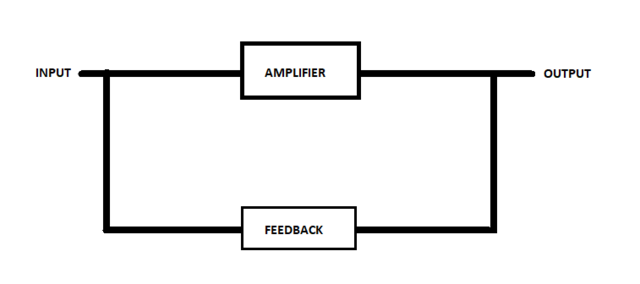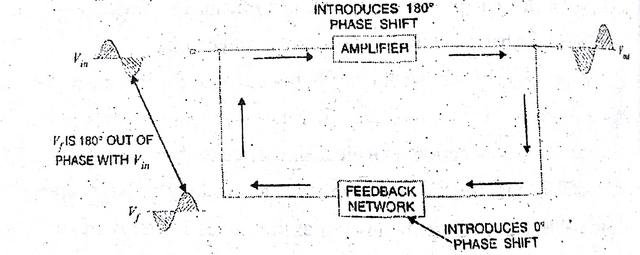Feedback Amplifier is defined as the introduction of feedback between the input and output of the amplifier. In simple words feedback topology are introduced in between amplifier to change the output from the given input.
The principle of feedback is probably as old as the invention of first machine but it is only 50 years ago that feedback has come into use in connection with electronic circuits. It has been found very useful in reducing noise in amplifiers and making amplifier operation stable.

Types of Feedback Amplifiers
Depending upon whether the feedback energy aids or opposes the input signal, there are two basic types of feedback in amplifier i.e.,
- Positive Feedback
- Negative Feedback
We will discuss about both the types one by one.
- Positive Feedback - When the feedback energy is in phase with the input signal and thus aids it, it is called positive feedback. This is illustrated in fig. Both the amplifier and feedback network introduce a phase shift of 180 degree. This result is a 360 degree phase shift around the loop.

- Negative Feedback - When the feedback energy is out of phase with the input signal and thus opposes it, it is called negative feedback. This is illustrated in fig. as you can see, the amplifier introduces a phase shift of 180 degree into the circuit while the feedback network is so desgined that it introduces no phase shift.

THANKS FOR READING
PLEASE UPVOTE
ALSO READ : - HOW I EARNED 3 BTC ( 2182650 INR ) IN NEARLY 6 MONTHS
Hi! I am a robot. I just upvoted you! I found similar content that readers might be interested in:
http://www.talkingelectronics.com/Download%20eBooks/Principles%20of%20electronics/CH-13.pdf